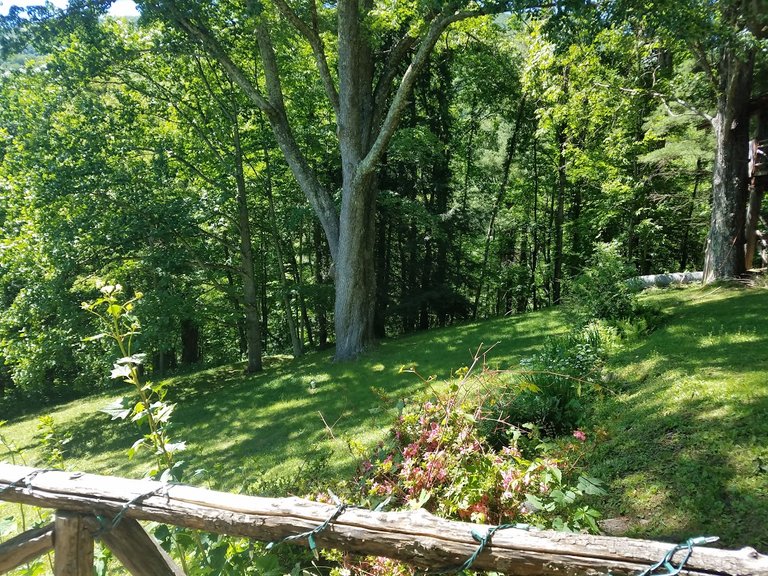My Greatest Challenge in Life
Since the time I applied for my first job many years ago, I have often reflected on that one interview question I was asked: "What do you consider to be your greatest weakness?"
I distinctly recall squirming in my chair as a naive 16-year-old, blurting out something rather trivial like, "I'm too much of a perfectionist." I was so taken aback by the question that I can't even recall my exact words, but I'm fairly certain it was along those lines.
Over the years, my response has evolved into something more genuine. I typically say, "My weakness is that I never specialized deeply in one particular area."

I would have thought that this might immediately deter employers, but surprisingly, the candid honesty seems to have its appeal. You see, it can either backfire or work in your favor, depending on the attitude of the person you're interacting with. Surprisingly, many individuals genuinely believe that a person can only excel in one or two things and become an expert in just one. So, one type of person might be entirely put off by my statement. However, increasingly, people are starting to recognize that being teachable is more important than having expertise in a specific area.
What The Heck is ADD?
During my upbringing, I encountered significant difficulties when it came to focusing on anything that didn't deeply pique my interest. Nobody seemed to have a solution for me. I was literally bouncing off the walls, and there was no clear diagnosis for my condition other than labeling me as a "Problem Child." Even as a young child in elementary school, my grades were consistently failing, and I often found myself isolated in a hallway chair or placed in an in-school suspension cubicle. I ended up in the school office at least once a week, with my head hung low, while the guidance counselor explained to my mother that I was at risk of failing another grade.

I can vividly recall a particular teacher making comments to my mom, stating that I was undeniably intelligent but appeared unwilling to learn. She was convinced that my seeming defiance was deliberate and recommended sending me to a boarding school where they could discipline me better through methods like paddling and outdoor work. Unfortunately, this marked a turning point for the worse.
It was the time of year when we had to take those Scantron tests. On that day, my teacher gave me a stern warning, telling me that if I didn't do my best on the test, I would face expulsion. Although it was likely an idle threat, I was terrified. I began working through the test, which included various logic puzzles that I found surprisingly entertaining. Before I knew it, the test was complete, and the bell rang.
I can't recall how many days passed, but I distinctly remember being called to the office over the intercom while in the middle of class. When I arrived, the principal, the guidance counselor, and my mom were all waiting for me. I took a seat, and they turned to me. The counselor turned to my mom and said, "I don't know how he did it, but he scored in the top 98th percentile on this test. This is despite him earning zeros and Fs on nearly every assignment this year, so I'm leaning toward cheating. I don't know how he did it, but we have no choice but to expel him. This is the last straw."
I remember my mom starting to cry and pleading with them to reconsider. They exchanged glances and offered her a third option: a boarding school in Hazard, Kentucky called Oneida Baptist Institute. As you can imagine, it was as awful as it sounds.
You see, I was being punished for something that didn't have a clear name back then. I didn't hear a medical description until I was around 18 or 19 years old, by which time the damage was already done. You've probably guessed by now that I am talking about Attention Deficit Disorder. I have mixed feelings about this diagnosis, to be honest, as I've come to believe that not everything needs to be pathologized. It's more a matter of recognizing that people learn differently and adjusting teaching styles accordingly. Unfortunately, this is not always possible in a classroom with 30 students.
Living with Disorganized Thinking
Because I was never properly guided by someone who understood how my mind worked, I tended to tackle life with sheer determination. Thank goodness my grandmother gifted me that Atari 800xl computer for my 7th birthday! Without this precious present, I might still be flipping burgers today. By some stroke of luck, I immediately took to it. Unfortunately, I never had a disk drive, so I was confined to BASIC, which posed significant limitations. Nonetheless, I persevered, creating elaborate games that would get erased when my mom turned off the computer. I wasn't too upset, but it marked the beginning of a life filled with unfinished projects.
I've always had a talent for thinking outside the box. To me, it never seemed extraordinary; I simply had a knack for coming up with unusual solutions that others hadn't considered. However, this ability is a double-edged sword. I can't count the number of times I've found myself in situations where I knew how to solve a problem but couldn't explain my thought process. People would dismiss my idea and attempt alternative solutions. Eventually, it would become apparent that my solution worked, leaving others somewhat bewildered. The issue was that I couldn't articulate the reasoning behind my gut feeling. I'm hesitant to use the loaded word 'intuition,' but that's likely how it appeared to others in the room.

At the end of the day, there are numerous things I'd like to achieve, but my mind resembles a turbulent ocean in a storm, with thoughts vying for my attention. I'm aware of this aspect of myself but have spent most of my life living spontaneously. I've consistently resisted the idea of writing things down, creating schedules, or engaging in any form of planning or organization, which has consistently triggered strongly negative emotions within me. I'm certain that there's much to delve into regarding this from a psychological perspective.
Finding a Path to Clarity
I won't delve too deeply into this here, but one significant improvement in this aspect of my life has come through my discovery of potent meditation techniques. Around a decade ago, I began practicing Vipassana meditation when I reached a point of desperation for a solution. A friend recommended that Amanda and I attend a 10-day meditation retreat just a few hours away in 29 Palms, California. What an experience that was! It truly transformed my life. I learned to sit with my own thoughts without reacting and to observe what was happening within my mind without self-interference.
Insights began flooding in one after another. I started to grasp how many of my conditioned behaviors and thought patterns had developed during my early childhood. I realized that I was unconsciously reacting to everything in my life, living on autopilot.

Bringing my focus into the present moment taught me that this is all that there really is. You can really feel that shift from living in a constant narrative to vivid, full sensate clarity. The weird thing is, it's actually always available and always has been. I just missed it because I was too busy chasing every thought down each and every rabbit hole.
While getting things done and becoming organized remains an ongoing challenge, I am better equipped to move forward as long as I remember that I already possess all the necessary tools for success. Now, it's time to complete what I've started, once and for all!
I would really appreciate your support!





